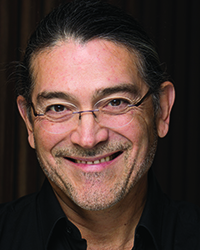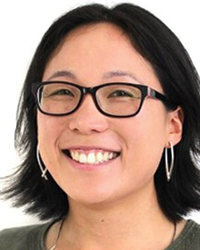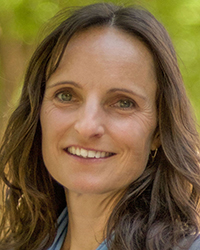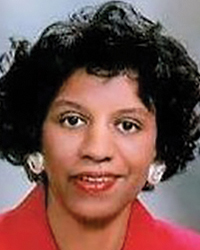Elizabeth Mannshardt, 2022 Committee on Career Development Chair, and Meg Ruyle, American Statistical Association
The following members of the ASA’s Committee on Career Development have worked with many experienced statisticians and mentors during committee events such as Guided Professional Networking at the Joint Statistical Meetings and webinars like “Distinguished Careers in Statistics and Data Science.” Now, as mentors themselves, they think back to their graduate school days and answer the question, “What would you tell your grad school self?”
Robert L. Santos
Director, US Census Bureau
Everything you need to have a fulfilling, successful career is already inside you. Your superpower will always be your whole self: your life experience; your culture; your technical knowledge from classes/work experience; even your personal traits (yes, I mean shyness/imposter syndrome, a passion for helping people, personal resilience, curiosity, creativity, etc.). Your weaknesses really can be transformed into strengths, just as your threats can be transformed into opportunities.
Beyond all the technical skills you will learn, by far the most valuable personal skill to develop is your critical thinking. Cradle it, nurture it with activities and hobbies not related to your field of study (e.g., photography, live music, hiking, fishing). That includes allowing yourself to fully embrace your superpowers that I mentioned above.
Clair McKay Bowen
Principal Research Associate, Statistical Methods Group Lead
If you have a significant other, schedule time together once a week (or some regular cadence) and stick to it. Unless I had a major deadline, I had date night once a week with my spouse. We set this up at the beginning of my graduate program because we wanted to be sure we spent quality time together. My spouse has always been my support, so I cherished the moments we spent time together. To this day, we still have date night or date day (brunch) once a week.
If you do not have a significant other, schedule time for yourself. That scheduled time could be taking yourself out to the movies, getting a nice meal, etc. Self-care is important.
Elizabeth Mannshardt
Director, Statistics Methods and Innovation Program, National Center for Science and Engineering Statistics, National Science Foundation
Ask questions. You are not expected to know everything nor to be infallible; over time, you will become an expert in some things (and more so by asking questions). I used to be afraid to ask questions, but now I value the opportunity to learn and explore.
Take chances and fail. It is okay to try and not succeed, to take that tough course but fail the test (statistics is hard), to explore a new idea but not have that paper published (it has happened to everyone), to apply for but not get that seemingly amazing job (these instances are not always a great fit). If you take chances, you will go to new and possibly unexpected places. Your career, just like life, is a journey with many choices and chances to take.
It is never too early to network. Your current set of grad school friends is your future professional network. Value the time you have together to collaborate, engage, discuss life, laugh, and find connections. They will be your colleagues, collaborators, coaches, and personal cheerleaders throughout your career. I am inspired by my former grad school friends’ amazing achievements and appreciate how we have continued to learn from and offer guidance and support to each other throughout our careers. And I love reconnecting at stats conferences!
Esther Pearson
Statistician and Researcher, Adjunct Professor, Franklin University
Use real-life scenarios to practice what you are learning in grad school classes. You don’t have to depend on the course projects and assignments to gain experience. Create projects and assignments for yourself with real-life scenarios that benefit you personally.
Jonaki Bose
Senior Advisor, National Center for Health Statistics
If there’s something you are scared to do, then that is probably what you should do because there is a lot to learn there.
Mark Otto
Patuxent Wildlife Research Refuge, US Fish and Wildlife Service
- Get a mentor.
- Do internships or work in a statistical consulting laboratory.
- Understand that, unlike school, all writing at work is collaborative.
- Do the basic, understandable analyses along with the ‘right,’ state-of-the-art one, or understand what decisions leadership is going to make with your analyses.
- More helpful but embarrassing: Don’t cover my tracks.
My clearest example was not in statistics but while working in a limnology lab. The procedures for filtering and clearing the slides, so I could count the algal species on 500 slides, did not work. I spent 95 percent of my time trying to fix the procedures. I never did, so I counted slides with hardly anything showing and submitted the counts and garbage analysis to my supervisors. To my relief, they were not used.
Later, with some statistical analyses we usually had to program ourselves and could never get to work, I was too unsure of myself to admit my failures. Finally, after some leadership training and reading about trust and learning from failure, I faced up to the shame of failing and not knowing what to do. Those admissions led to cooperative work, all trying to figure out the problems. They were not the condemnations I feared. I felt more trusted and certainly less anxious not having to watch my back.
That has led to trying harder things, expecting to fail at times but finding the best way forward with my group. Also, while leading, it has become important for me to create a safe environment for people to try, fail, and not feel they have to apologize for it. Thank you, ASA, for that training that changed my career and life.
For more advice and to receive notifications about upcoming career development events, join the Committee on Career Development’s Friends of the CCD email list.








Leave a Reply